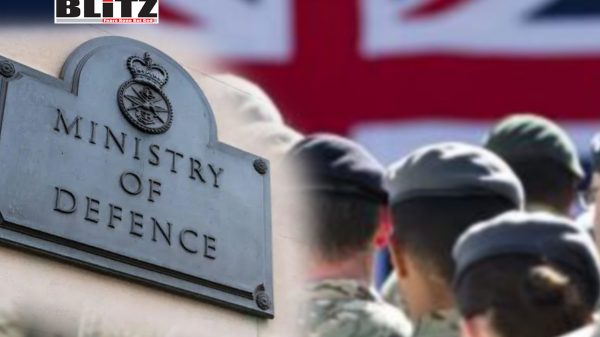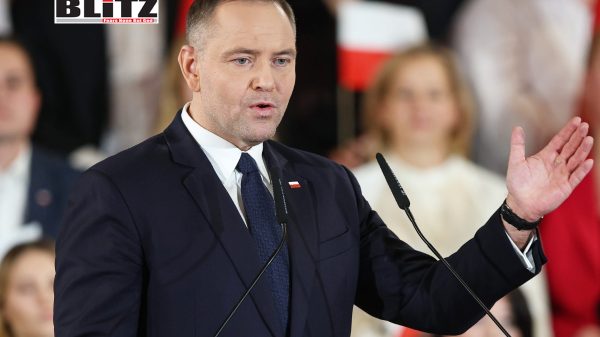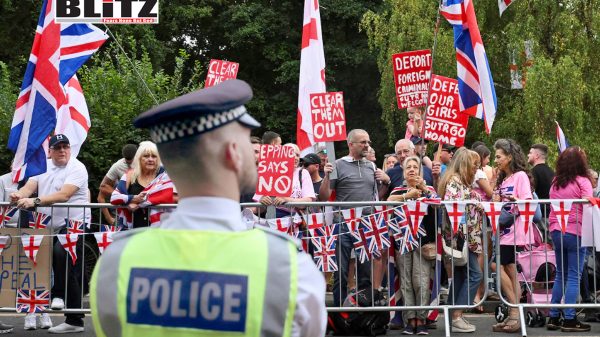UK government pays £8m to survivors of child sexual abuse by British troops
- Update Time : Tuesday, August 26, 2025

The UK Ministry of Defense (MoD) has quietly paid out more than £8 million in compensation to children who were sexually abused by members of the British armed forces or while living on military bases, according to newly revealed figures. The revelations, obtained through a Freedom of Information request by openDemocracy, shed disturbing light on the scope of historic child sex abuse within Britain’s military institutions, raising fresh questions about accountability, safeguarding, and the ongoing failure to protect vulnerable young people.
Since 2017, at least 155 civil claims have been successfully brought against the MoD for non-recent child sex offences. The payouts, funded by taxpayers, have averaged around £52,000 per survivor. While the individual sums vary, lawyers argue that each one represents a life irrevocably scarred by abuse.
The annual compensation costs have risen significantly in recent years, starting at just £16,000 in 2017 and peaking at £2.5 million in 2023. The sharp increase coincides with growing public scrutiny following the launch of the Independent Inquiry into Child Sexual Abuse in 2019, alongside the Truth Project, which provided survivors an official platform to share their testimonies.
Solicitor-advocate Ahmed Al-Nahhas of Bolt Burdon Kemp, a firm that specialises in representing service personnel, said the figures reveal a “stark and worrying picture” for the British military. He noted that payouts of this nature are not made lightly. “The MoD will not pay out compensation unless there was a finding of fault or a real risk that a court would hold it liable,” Al-Nahhas explained. “This usually points to failures to protect children or to vet individuals in positions of trust.”
Behind the statistics lie devastating personal stories. Survivors of abuse at the hands of British military personnel describe childhoods marked by betrayal, silence, and systemic failures to intervene. “Behind each of these cases is a person and a life that may have unravelled as a result of abuse,” Al-Nahhas said. For many, financial compensation represents only partial recognition of the harm done, not true justice.
Andrew Lord, a partner at the human rights law firm Leigh Day, echoed these concerns. He described the sheer number of cases as “shocking” and praised the bravery of survivors who stepped forward. Lord is currently representing two individuals who allege they were abused while attending a British Army-run school, a case in which survivors recently accused military police of a cover-up after crucial evidence was unearthed by journalists rather than investigators.
“Compensation claims are another important route to justice for survivors,” Lord stressed. “The courage it takes to challenge a powerful institution like the Ministry of Defense cannot be underestimated.”
While the compensation payments relate to historic cases, data shows that abuse within the armed forces has by no means been confined to the past. openDemocracy’s investigation found that between January 2010 and June 2025, at least 166 court martial cases included charges involving child sexual offences.
These offences range from sexual communications with a child and indecent assault, to possession of indecent images and sexual activity with a child by someone in a position of trust. In many instances, charges of rape or sexual assault were brought alongside specific child abuse offences, suggesting a wider pattern of predatory behaviour.
The reality may be far worse, as court martial records do not always specify the age of the victim. In cases of rape or assault, it is often unclear whether the victims were children or adults, meaning the total number of child abuse cases could be significantly higher than official records indicate.
Among the cases is that of “Jessica” (a pseudonym), who was just seven years old when she was abused in the 1980s by her babysitter, Martin Roberts, on a British Army base in Germany. Roberts, then 16, later joined the military himself. Decades later, in July 2024, he was convicted at court martial of multiple offences including rape and indecency with a child. He received a four-year prison sentence but was released after serving only one.
Jessica’s case illustrates how abuse could flourish in the close-knit, insular environments of military bases, where families lived in close quarters and authority figures often went unquestioned. Her abuser’s relatively light sentence has fueled criticism that the military justice system is ill-equipped to handle the seriousness of sexual crimes, particularly against children.
Data from the Service Police since 2021 shows 128 recorded cases of sexual offences involving under-18s. Of these, 113 victims were themselves serving personnel-meaning child recruits or young trainees within the armed forces-while 15 were civilians. Prior to 2021, younger victims were recorded only as “under-21,” obscuring the extent of child victimisation.
The persistence of such cases underscores a broader problem. The British military has already faced widespread criticism for its handling of sexual offences more generally, with openDemocracy reporting that only 22% of rape cases in military courts end in conviction. Critics argue that the system remains skewed towards protecting reputations rather than safeguarding victims.
The MoD has publicly condemned the abuse and insisted that robust mechanisms are now in place to address such crimes. A spokesperson said: “Unacceptable and criminal behaviour has absolutely no place in our Armed Forces. The Defense Serious Crime Command assures all serving personnel that any reporting of a serious crime will be investigated independently from their chain of command and prosecuted to the fullest extent of the law.”
However, survivors and campaigners remain sceptical. They argue that assurances of independence mean little when past cases have revealed systemic failures, missing evidence, and cover-ups. The gap between official rhetoric and lived reality for victims remains vast.
The revelations form part of a wider crisis of trust facing the British military. In recent years, it has been rocked by allegations of sexual misconduct, cover-ups, and failures to discipline perpetrators. Reports have shown that a quarter of all cases in military courts since 2018 have related to sexual offences, and enforcement of bans on troops exploiting vulnerable women abroad has been patchy at best.
The £8 million paid out to child abuse survivors since 2017 is not just a financial figure-it represents institutional failure. For survivors, it may provide some measure of recognition, but it cannot undo years of trauma or restore faith in an institution that was supposed to protect them.
For the MoD, the challenge is twofold: confronting the scale of historic abuse while demonstrating that lessons have been learned. Yet with new cases still emerging and confidence in military justice eroding, critics warn that Britain’s armed forces still have a long way to go to repair their image and, more importantly, ensure that children are never again left vulnerable to abuse by those entrusted with their protection.










